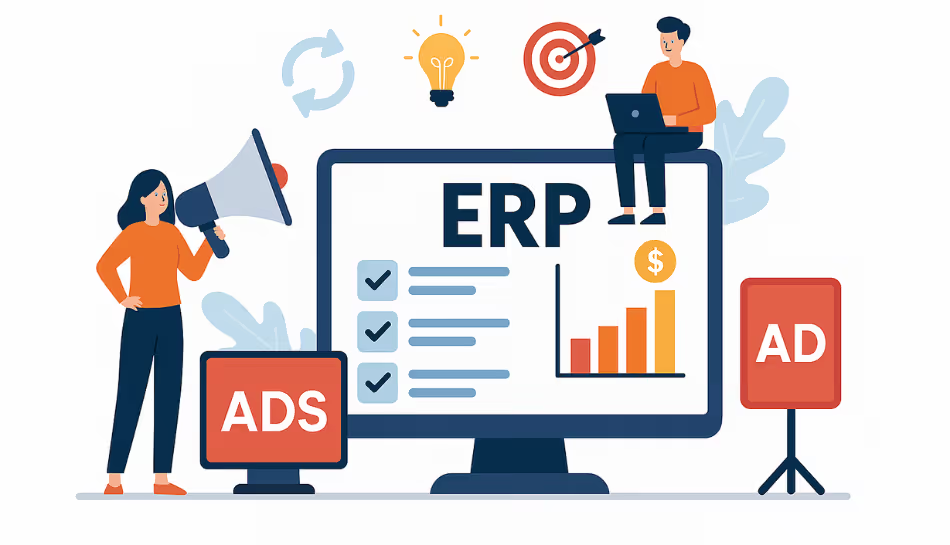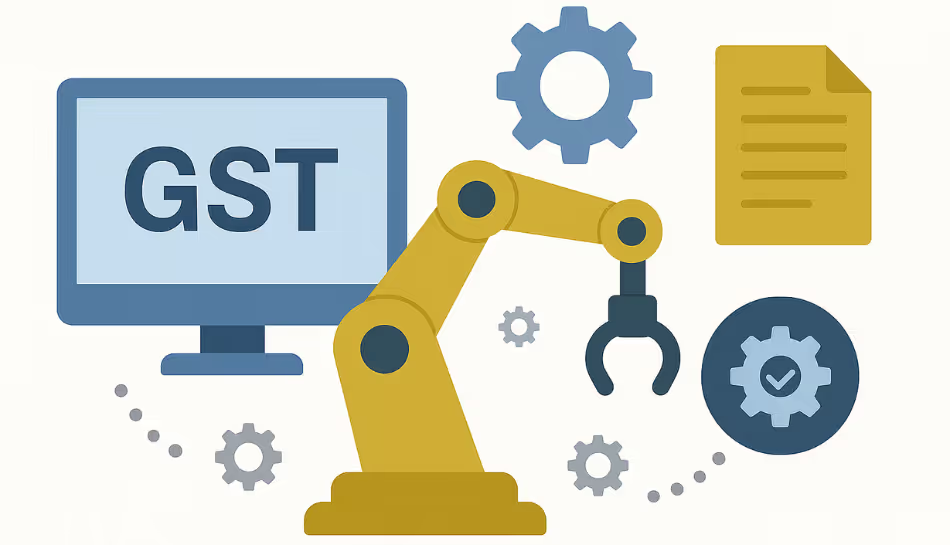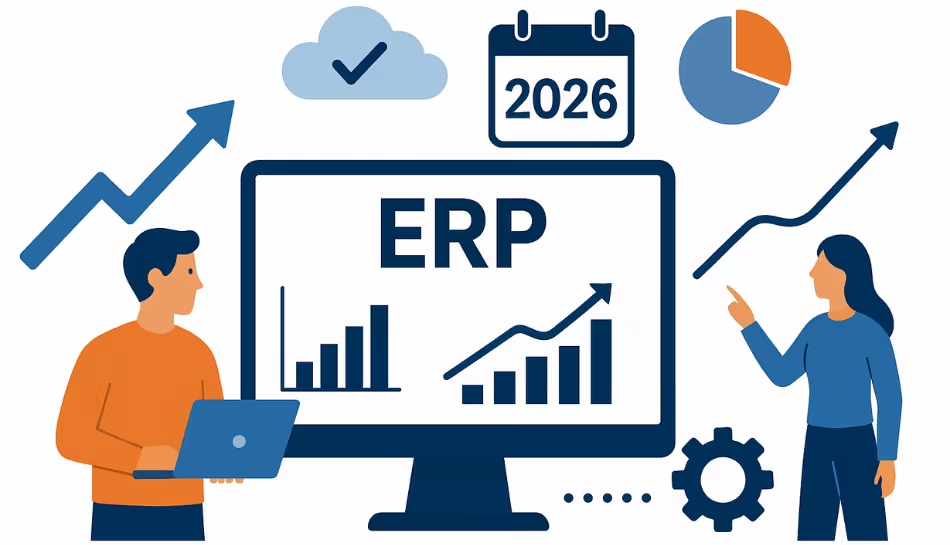
The advertising industry is known for its creativity, speed, and high-pressure deadlines. But behind the scenes, it also faces challenges in budgeting, campaign management, client coordination, billing, and team collaboration.
That’s where ERP for the advertising industry steps in.
While ERP (Enterprise Resource Planning) software is often associated with manufacturing or retail, modern, flexible ERP systems are becoming a game-changer for agencies, media houses, and marketing firms that want to bring structure to their creative chaos.
What Is ERP for Advertising?
An ERP system for advertising agencies is a software solution that integrates various functions like:
- Client and project management
- Resource allocation
- Time tracking and approvals
- Media buying and planning
- Finance and billing
- HR and payroll
- Reporting and analytics
Instead of juggling multiple tools and spreadsheets, everything runs through a central platform, making work faster, more organized, and more profitable.
Why Is ERP Important for the Advertising Industry?
Here are some core reasons why advertising firms benefit from ERP systems:
1. Streamlined Project Management
In advertising, no two projects are the same. ERP helps manage:
- Briefs
- Timelines
- Assignments
- Creative revisions
- Final delivery
With built-in project tracking, you know exactly where each campaign stands and who’s doing what. This improves accountability and helps deliver work on time.
2. Better Resource Planning
Your team is your biggest asset. Whether it’s copywriters, designers, account managers, or videographers, ERP lets you:
- Allocate tasks based on availability
- Track workloads in real time
- Avoid overbooking or underutilizing staff
- This means healthier teams and fewer deadline disasters.
3. Accurate Budgeting and Billing
Clients want clarity on what they’re paying for. ERP helps with:
- Quotation and proposal creation
- Budget tracking per campaign
- Auto-generated invoices
- Time and expense logging
You can easily connect work done with time spent and bill clients accordingly. It’s transparent, fast, and reduces revenue leakage.
4. Media Planning and Buying
Ad buying across platforms like print, digital, TV, or outdoor requires coordination and cost tracking. ERP helps:
- Plan placements
- Track media budgets
- Record vendor deals
- Automate billing and reconciliation
This avoids overspending and keeps clients informed about where every rupee goes.
5. Real-Time Reports and Client Updates
ERP gives real-time dashboards on:
- Campaign progress
- Resource utilization
- Budget vs actuals
- Team performance
You can also generate client-ready reports within minutes, making your agency look more professional and responsive.
6. Centralized Communication and Files
Creative assets, feedback, and approvals often get lost in email threads. ERP software keeps everything organized in one place:
- Comments and feedback logs
- Version control for files
- Approval workflows
This leads to faster sign-offs and smoother collaboration, both internally and with clients.
Who Should Use ERP in Advertising?
ERP is useful for:
- Full-service advertising agencies
- Digital marketing firms
- Media buying houses
- Creative production teams
- Branding consultancies
Whether you’re a team of 10 or 100, the right ERP software grows with you.
Final Thoughts
The advertising world thrives on ideas, but to deliver those ideas efficiently and profitably, you need structure. That’s where ERP for advertising industry makes all the difference. It simplifies operations, saves time, improves client service, and ultimately helps your agency grow sustainably.
If you’re still managing projects with disconnected tools and scattered data, it’s time to make the switch to an ERP system designed for your unique needs.

